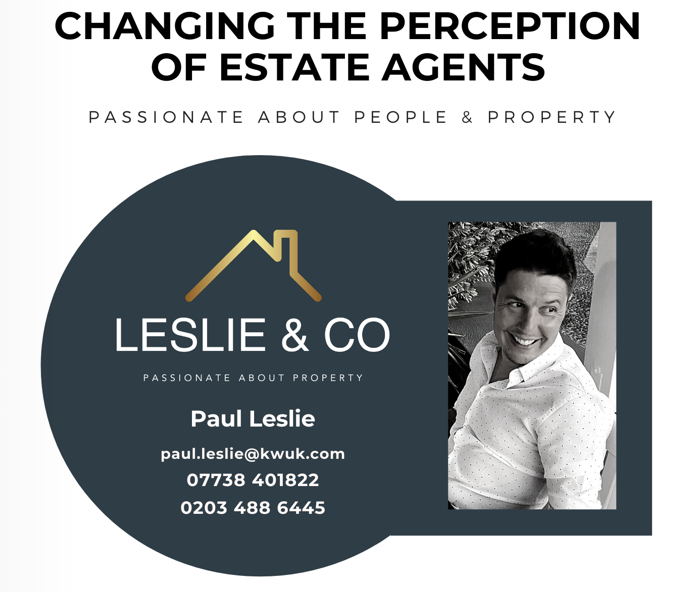Changing the Perception of Estate Agents
Ever heard of the MORI IPSOS Veracity Index?
Me neither! But it is an annual poll carried out by the organization. Market an Opinion Research International, which surveys the nation's trust in certain professions.
Unsurprisingly it paints a bleak picture and an all too negative perception for the estate agency industry. In short:
- Just 30% of British adults interviewed last year “trusted estate agents to tell the truth”.
- The state agents featuring the 5 least trusted professions, along with journalists, advertising executives, government ministers, and politicians.
Over the page, I'll tell you why I think this is the case.
I think it is a fair assumption it is fair assumption to believe that incentivized financial remuneration can drive certain behaviours in business; therefore it is no wonder that the estate has a questionable reputation as a whole state agents are not intrinsically bad people and the vast majority of them want to do a good job. They want to help people move home successfully with the least amount of stress possible and to earn a reasonable living for doing so.
Pretty straight forward right?
Unfortunately not.
The problem is a traditional estate agency model is largely, but not exclusively, how its people are paid. As I will hopefully illustrate, sadly it is not necessarily conducive with the providing a great service.
What exactly do I mean by that?
Believe it or not where a fee of 1.5% of the property sale price is earned by a company, the individual agent will sometimes turn just 5% of that fee.
For example, if we take a £500,000 property where the seller pays a fee of £7,500 if the agent earns £375 in commission. In addition, this transaction might take six months or more to complete. Motivating? Perhaps. But ultimately it can encourage apathy toward customers and force agents to run from one transaction to another, trying to spin any plates in order to earn sustainable income. Inevitably, those plates can drop when there are too many to keep spinning at once. It is also incompatible with the customer's needs and can only serve to make an already stressful process worse.
What do we do differently?
With the bespoke agency model-the agent that does the work, and faithfully attends to the customer throughout the process, is paid a much larger proportion of the commission. Instead of the high street model where the money is syphoned off to pay exorbitant fixed overheads, including but not limited to, multiple branch office rents, rates, staff and car leases. This is the way that the Americans have been selling real estate for decades and it is the reason why unsurprisingly, the USA has a much better reputation for real estate services and efficiency. This is why I believe in this model and I have chosen to work in association with Keller Williams. Keller Williams isn't just an American business now operating in the UK it is the largest state agency in the world with 192,000+ agents operating in 44 countries. And whilst cultures, practices and legal systems will differ from market to market, country to country, one thing is certain may matter which continent you live on. If you pay people properly so that they enjoy their work, covet success, and deliver exceptional customer service. it's a win-win for all parties concerned. That certainly drives good behavior in anyone's language.
Unless you use a bespoke, self-employed estate agent, the person who visits from a conventional high street agent, especially from a corporate brand, will be employed. That's not unusual. Most people in the UK are employed, so what's the problem with it? Essentially boils down to incentive. Let me ask two questions to fully illustrate this:
- If you had the choice of two businesses which charged the same commission, but one pays the agent who delivers the service and crucially negotiates for you £300, versus the other who is paid £3780. Who is more motivated to sell your home for the best possible price?
- What about if there was an offer of £30,000 below the asking price? If one agent personally earned £22.50 and the other earned £283.50 for this difference, which one is more likely to push for a higher price.
No brainer, surely?
If you would like to chat more about property and how our approach is different, I would love to hear from you. My name is Paul Leslie and I am genuinely passionate about property. I get to work in a profession that I love and one which revolves around helping people navigate through some of the most important, emotive, but ultimately rewarding decision of their lives.
I grew up in northwest London and I've been in the property industry since 2012 initially as a developer but more recently as a Branch Manager for a prestigious corporate high street agency in Ealing. I live locally and I'm a huge advocate of West London. My long term goal is to be the best Estate Agent in the area and to create the legacy for my family, my ‘& Co’. my son Raff.
In June of 2020, I had a ‘Jerry Maguire’ moment and decided it was about fewer clients and more personal attention. During my time in the industry, I have learnt that high street agents are almost completely transactional-based rather than being relationship-based this is what I want to change.
Sound different?
Feel free to contact me for a chat or any property related advice.
T: 020 3488 6445
M: 07738 401822
E: paul@leslieandcompanyuk.com


